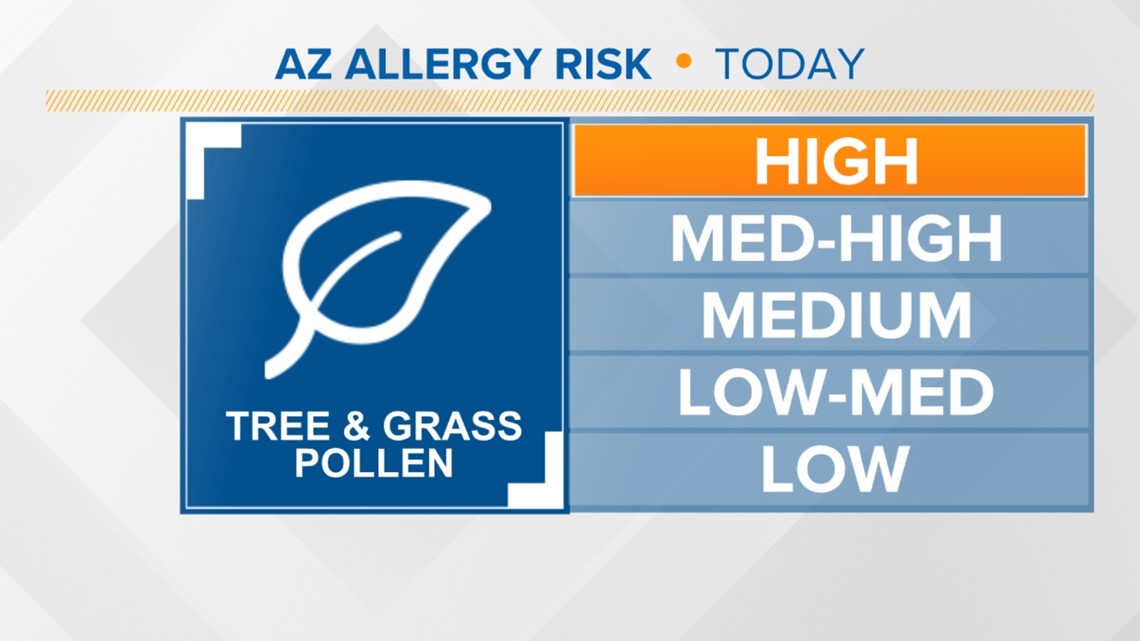ARIZONA, USA — Congestion, itchy eyes and sneezing are all in the forecast for the next several days for people with allergies in Arizona.
The thought that Arizona is a haven from allergies is a common misconception. Experts say Arizona has, and will, only become a worse state for people with allergies due to the ongoing megadrought.
The dry conditions across much of Arizona and strong winds Thursday afternoon through Friday morning will lift dust into our atmosphere. The good news is that winds will settle down Friday afternoon, so we should feel some relief from the dust over the weekend.
Dry conditions are projected to worsen as the state's megadrought continues, according to public health experts in Arizona from the Medical Society Consortium on Climate & Health.
RELATED: 'The nature of the beast': The numerous ways Arizona's megadrought will affect people's health
An increase of particles in the air from dust, wildfire smoke and pollution won't only trigger the allergies of an individual, but will also affect people with chronic diseases.
"Drought leads to drier conditions, which leads to more dust and dirt in the air," Valley emergency physician Dr. Brian Drummond said.
"Things drying out leads to forest fires, which lead to a whole other particulate in the air. With the megadrought...you're getting dust, forest fires and heat. That combination puts more particulate in the atmosphere and people are breathing that in on a daily basis."
Dust won't be the only reason people will need to keep allergy medications and tissues nearby over the next week or two.
Tree and grass pollens will be high Thursday and the strong afternoon winds will only make matters worse and add to the list of allergy culprits. Pollen levels will remain high over the weekend and worsen early next week.


Human-caused climate change will also continue to increase pollen levels in plants as the world becomes overall warmer.
"Allergenic plants don't die off in the winter thanks to the warming weather, so we have a much longer allergy season than we used to have," public health nurse Ronda Seifert said.
"In a warming world with more carbon dioxide, some allergenic plants produce more pollen than they used to and the allergenicity of the pollen, which is how allergic humans are to it, has worsened as well."
The growing pollen count will result in new allergies in people who have never experienced them before and those used to allergies having a more difficult time, according to Seifert.
Arizona Weather
Arizona has seen its fair share of severe weather. Here is a compilation of videos from various storms across the Grand Canyon state.

